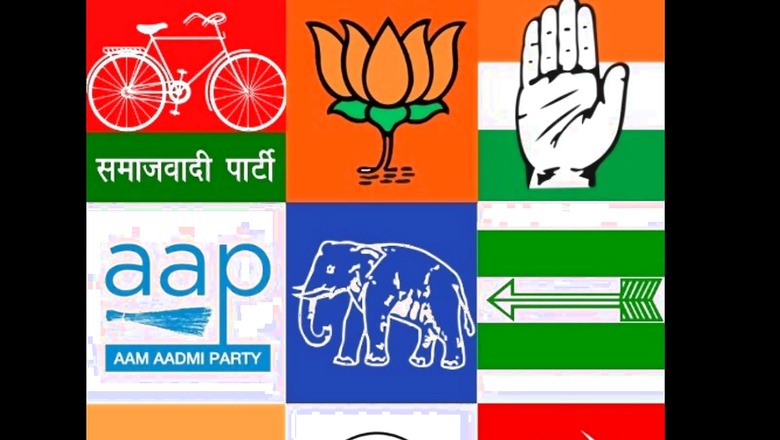
views
According to a recent Right to Information (RTI) reply by State Bank of India (SBI), about 65 per cent of all electoral bonds sold since 2018 were at the Mumbai, Kolkata and Hyderabad branches of the SBI. Moreover, the maximum bonds encashed, at 62 per cent, were at the New Delhi branch, as per the reply.
Since the start of the scheme in 2018, electoral bonds of Rs 10,791.47 crore were sold at 17 branches of SBI, although 29 SBI branches are authorised to sell them, as per a report by Indian Express. The information was based on data from March 2018, when the first tranche was sold, to the most recent phase of available data (October 1-10, 2022).
Mumbai (Rs 2,742.12 crore), Kolkata (Rs 2,387.71 crore) and Hyderabad (Rs 1,885.35 crore) were the top three branches where electoral bonds were purchased, SBI data showed in a reply to transparency campaigner Commodore Lokesh Batra (retired) on November 23, the report said.
The New Delhi branch sold bonds worth Rs 1,519.44 crore in the time period, but it topped the list for the majority of the bonds being encashed, at Rs 6,748.97 crore. Hyderabad and Kolkata followed with Rs 1,384.03 crore and Rs 1,012.98 crore respectively.
The bonds have so far been enchased at 14 regional branches, including Srinagar (Rs 50 lakh) and Gangtok (Rs 2.50 crore), although the two branches have seen zero sales, as per the Indian Express.
Started in March 2018, the electoral bond scheme was amended by the Union Finance Ministry in November to allow sales for a longer period in a year and the Government can now notify an additional 15 days of sales in any year with Assembly elections, apart from the usual four 10-day windows.
The 23rd tranche went on sale from November 9 to November 15 this year.
Batra, terming the scheme “opaque”, said the SBI data revealed that 93.67 per cent of the bonds sold so far were of the Rs 1 crore denomination, the biggest available under the scheme, as per the report.
Meanwhile, the Center had, in October, defended the scheme in the Supreme Court, saying it is the most “transparent” way for political funding, and there is “no scope of black money”.
The court was hearing a petition filed by the Association for Democratic Reforms (ADR).
Senior Advocate Kapil Sibal had argued that the electoral bonds are an opaque structure and more transparency is required. “In opaque way of funding of political parties…this is a matter which shall be heard by a larger bench,” Sibal said.
The Supreme Court had said it would examine on December 6 whether a batch of pleas challenging laws permitting funding of political parties through the electoral bond scheme should be referred to a larger bench.
The matter last came up in the court on March 26, 2021, when a bench headed by the then Chief Justice of India SA Bobde dismissed an application filed by ADR seeking a stay on any fresh sale of electoral bonds ahead of the Assembly elections that were due at the time.
Read all the Latest Politics News here


















Comments
0 comment